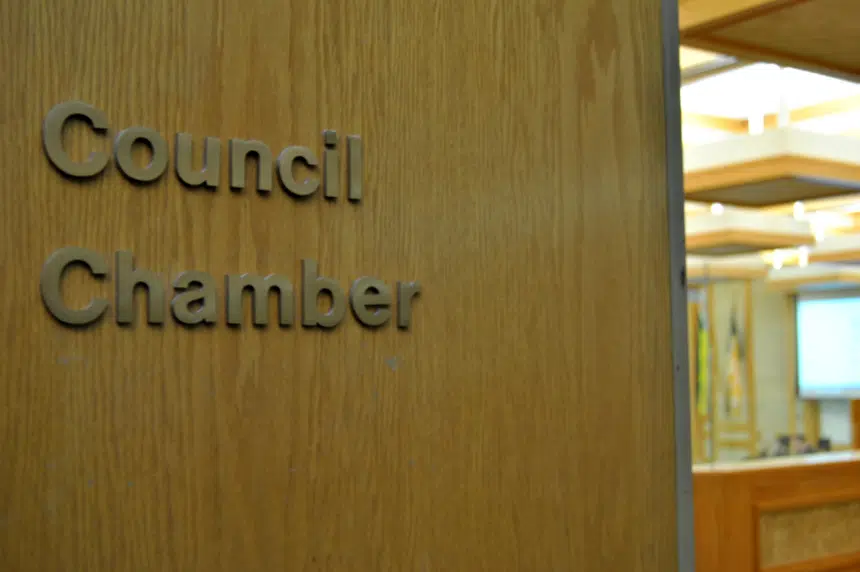Updates of what the city is doing with the COVID-19 crisis, along with clarifications on past changes highlighted Saskatoon’s regular council meeting Monday.
The meeting was held in council chambers, but all ten councillors participated over the phone. Mayor Charlie Clark was in attendance, and delivered a thankful address to those on the frontlines, along with all Saskatoon citizens.
“The work that’s been done is extraordinary,” he said as the meeting began. “It’s been really, really incredible to see and hear just the wide range of efforts people are taking to support one another through this time.
“Every one of you that is staying home, every one of you that is taking those extra precautions, (you’re) saving lives.”
After the public acknowledgements were through, there were many areas to attend to by council.
Back in February, the city received a “stable outlook” and AAA credit rating by Standard & Poor’s (S&P) Global Rating Services. That report was received as information by city council Monday, but clarification on what it means moving forward with the emergence of the COVID-19 crisis were discussed.
Clark said the financial standing currently is great to see, especially in unprecedented times globally.
“Given just how rocky the road ahead is economically, and the uncertainties that we’re facing, this is a reminder of just how important it has been to have such a solid financial footing, and planning, to have that reinforced by (S&P),” he said.
“We’re in as good a position as we can be, and we know we have challenges ahead.”
Following the re-assurance by the city, the city administration clarified some of the questions surrounding parking.
City General Manager Lynne Lacroix said that all city areas, including surface parking and metered parking, were free to residents during the COVID-19 pandemic.
All third party parking, however, falls under the discrepancy of those organizations.
Both city director of Emergency Management Pamela Goulden-McLeod and Saskatoon Police Chief Troy Cooper were in attendance to take questions during Monday’s meeting.
Goulden-McLeod opened with an overview of their operations.
“We can expand, and we can contract the way we’re working, depending on the situation,” she said.
“We need the whole community involved in mitigating the risk (of COVID-19) and more importantly, as part of the recovery process when we eventually get things back on our feet.”
She said her organization was happy with the way the province is handling the situation and the restrictions that were put through last week.
Goulden-McLeod said they are continuously working with other municipalities and are “situationally aware” about where others stand in their response across the country. She said they are currently focusing on physical distancing from others, and making sure everyone mitigates the spread of COVID-19.
Goulden-McLeod added that getting outside and walking or biking in areas with minimal area to roam such as the Meewasin Trail is okay – as long as social distance guidelines are followed. She added that there are other areas to roam in the city for those walking, or biking.
Meanwhile, Chief Cooper said calling the police non-emergency number is the way citizens can report on those who are not complying with the province’s order with COVID-19, whether that is not self-isolating following travel, or holding gatherings larger than 25.
“In all cases where we receive complaints, we are in contact with the medical health office and we take our direction on action and enforcement from them,” he said.
A question was raised about criminal record checks, especially within the vulnerable sector. Cooper said for some jobs, additional screening is needed.
That component requires fingerprinting at police headquarters, which is currently closed to the public. Cooper said they have an agreement with those in the health sector to work together in these cases.
“We’ve communicated separately with them to make sure that people are applying to work there, or applying to volunteer there, have easy access, separate access to those records to make sure we don’t put up that barrier.”
In terms of school zones, Saskatoon police urged motorists to follow school zone traffic laws earlier Monday in a press release.
Cooper offered some clarity in this area.
“Our priority focus for traffic and enforcement is not school zones. There’s no one at schools. The press release that came out today was highlighting the need for people to be cautious, and careful in school zones.”
He said there is a legal requirement that remains in school zones, but traffic enforcement is restricted to egregious offences at this time.
“We’d still like people to monitor their speed,” he said. “Whether there’s a police presence there or not, to comply with the speed limits.”
He said cameras at school zone locations have been moved to other areas where they’re “more useful.”
Saskatoon city council will reconvene on Wednesday for another special meeting on COVID-19.
Committee meetings for the city up until April 17 have been cancelled, the city website lists.











